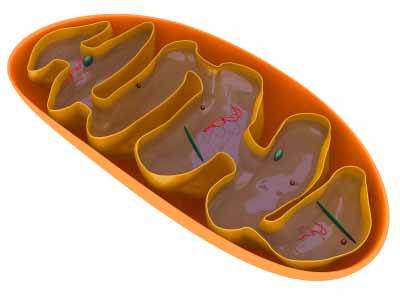Coenzyme Q10 or CoQ10 gets a lot of attention for heart disease, heart disease prevention, circulation support… and it should. A vital part of of our cellular process for energy, we simply cannot live without CoQ10 at the right amount.
What is CoQ10?
Coenzyme Q10 is an enzyme that is important in getting energy for our cells. Each of our cells has something called mitochondria inside it.

The mitochondria is considered the brain of the cell. In order for the cell to complete certain processes, it needs energy. Coenzyme Q10 is an essential part of energy liberation. CoQ10 also is an antioxidant, so it chews up free radicals or waste products in the cell, and gets them out.
How does CoQ10 have anything to do with the heart?
Our heart is a muscular pump that pumps blood throughout our body all the time. In order to be able to continue that activity, a lot of energy needs to be liberated in the muscle cells of the heart, and CoQ10 is involved in that process.
Can CoQ10 decrease my blood pressure?
As CoQ10 supports the heart muscle and the energy it needs to pump blood through the body, supplying CoQ10 to tired heart muscle does reduce the stress on the heart. It takes a while to see these effects. In fact, CoQ10 has the potential to lower systolic blood pressure by 17 mmHg and diastolic blood pressure by 12 mmHg.
Can CoQ10 reduce my incidence of heart disease?
CoQ10 can support the heart and due to its antioxidant capacity, it also reduces the stress of free radicals pre and post surgery. For this reason, CoQ10 has been found to be supportive for surgery after congestive heart failure, for chemotherapy patients taking medications like doxorubicin which can affect the heart, as well as for diabetes and even headaches. In short, CoQ10 is an excellent circulation support.
What is the best form of CoQ10?
Ubiquinone is the true name for CoQ10 as part of its chemical structure. Ubiquinol however is the fat-soluble form of ubiquinone in supplement form which is similar to how CoQ10 is found in the body. If something is fat-soluble, it means that it can be more easily absorbed by the body and integrated into the cell as our cells are surrounded by fat molecules.
When is it essential for me to take CoQ10?
The aging process
Aging naturally depletes CoQ10, and thus as our age numbers increase it would be beneficial to include CoQ10 in our regime.
High cholesterol and statins
If you are taking a cholesterol medication in the statin family (atorvastatin, simvastatin), CoQ10 and cholesterol production share a similar pathway. In reducing your cholesterol production, the statin medications also reduce CoQ10 production. In certain individuals, this can produce complications like muscle pains and wasting, fatigue, heart palpitations and can be quite severe. Supplementing with CoQ10 while on these medications supports their method of action and gives the body the CoQ10 it needs.
Exercise support and performance
CoQ10 is known to be depleted in high-intensity physical activity due to the taxing effect on the muscles.
Still unsure?
If you are still confused about using CoQ10, ask your health professional. Remember that for heart disease, one intervention will never be quite adequate, however CoQ10 is a supportive and important part of your heart protection regime!
References
Gaby AR. Nutritional treatments for acute myocardial infarction. Altern Med Rev. 2010 Jul;15(2):113-23.
Deichmann R, Lavie C, Andrews S. Coenzyme q10 and statin-induced mitochondrial dysfunction. Ochsner J. Spring 2010;10(1):16-21.
Golbidi S, Ebadi SA, Laher I. Antioxidants in the treatment of diabetes. Curr Diabetes Rev. 2011 Mar;7(2):106-25. Review.